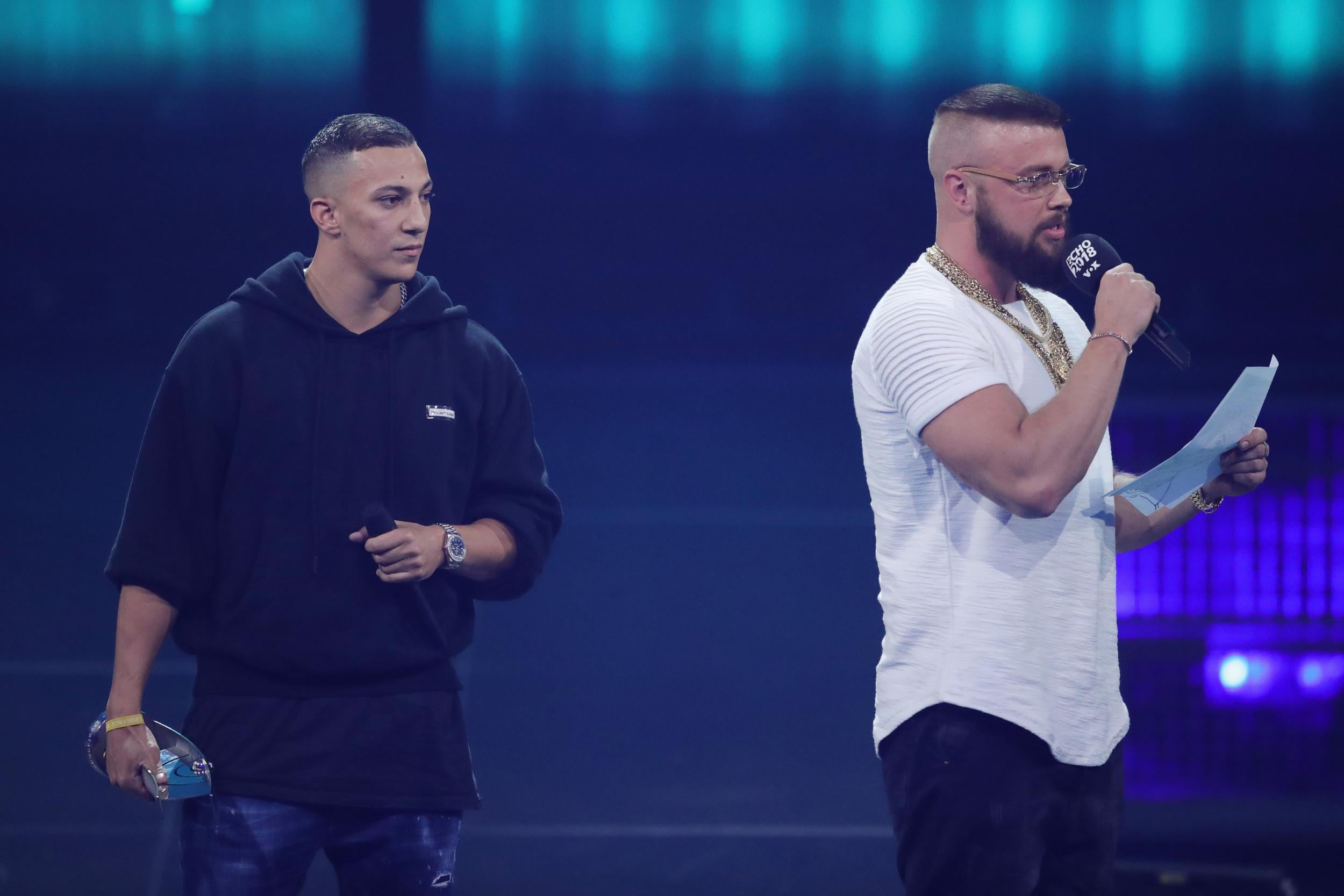Germany scraps top music prize after rap duo wins for album containing 'antisemitic lyrics'
Artists began handing back their awards in protest after Kollegah and Farid Bang won the hip hop/urban category for an album criticised by several Jewish groups

Your support helps us to tell the story
From reproductive rights to climate change to Big Tech, The Independent is on the ground when the story is developing. Whether it's investigating the financials of Elon Musk's pro-Trump PAC or producing our latest documentary, 'The A Word', which shines a light on the American women fighting for reproductive rights, we know how important it is to parse out the facts from the messaging.
At such a critical moment in US history, we need reporters on the ground. Your donation allows us to keep sending journalists to speak to both sides of the story.
The Independent is trusted by Americans across the entire political spectrum. And unlike many other quality news outlets, we choose not to lock Americans out of our reporting and analysis with paywalls. We believe quality journalism should be available to everyone, paid for by those who can afford it.
Your support makes all the difference.Germany has scrapped a prestigious music prize after an uproar over a rap duo who won for an album allegedly featuring antisemitic lyrics.
Rappers Kollegah and Farid Bang won the hip hop/urban prize for their album Jung, Brutal, Gutaussehend 3 (Young, Brutal, Good-Looking 3), which sold more than 200,000 copies, despite lyrics which referred to the Auschwitz Nazi death camp, which were considered offensive by several Jewish groups and other critics.
Both rappers have said they reject antisemitism, despite lyrics which reportedly say that their bodies are “more defined than Auschwitz prisoners”, and: “I’m doing another Holocaust, coming with a Molotov.”
However Kollegah, a Muslim convert, apologised for the lyrics, saying on the night of the awards that he did not want to engage in political debate. “We are here to party,” he said, according to the BBC.
In response to the prize, a growing number of artists – including the conductor Daniel Barenboim – began handing back their prizes in protest.
Rock singer Marius Müller-Westernhagen also said he was handing back the seven Echos he has won since the 1990s. Other artists returning their awards include the pianist Igor Levit, and renowned musician and producer Klaus Voormann, who designed the cover for Beatles album Revolver.
The BVMI [Federal Music Industry Association] has now said it does not want the Echo award “to be perceived as a platform for antisemitism, misogyny, homophobia, or belittling of violence”.
It added that while events at this year’s prize gala could not be undone, it wanted to ensure “such a mistake could not be repeated in the future”.
“The Echo brand is so badly damaged that a complete new beginning is necessary,” it said on 25 April.
Enjoy unlimited access to 100 million ad-free songs and podcasts with Amazon Music
Sign up now for a 4 month free trial (3 months for non-Prime members)
Enjoy unlimited access to 100 million ad-free songs and podcasts with Amazon Music
Sign up now for a 4 month free trial (3 months for non-Prime members)
The controversy around the prize, along with video footage showing an attack in Berlin on a young man wearing a skullcap or kippa by a Syrian asylum seeker, has sparked a wider public debate about rising antisemitism in Germany.
The Jewish community has faced a wave of attacks in recent months, which Chancellor Angela Merkel describes as a “new phenomenon” distinct from far-right antisemitism.
Kollegah and Farid Bang’s record company, BMG, has said it is utterly opposed to antisemitism and has pledged to contribute to a campaign against it.
Join our commenting forum
Join thought-provoking conversations, follow other Independent readers and see their replies
Comments